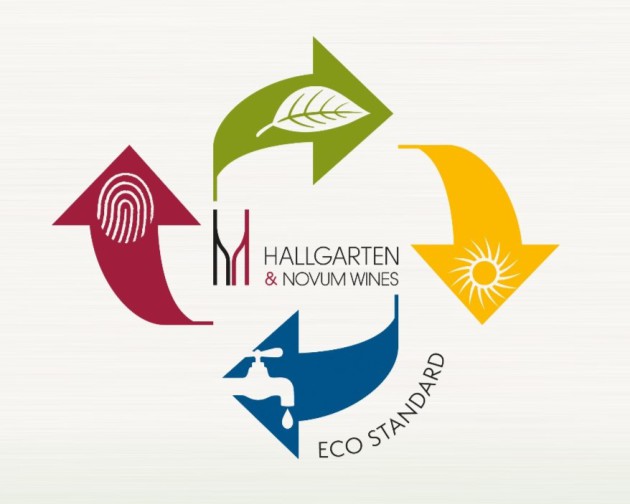
Bottle weight update to Hallgarten Eco Standard
Hallgarten & Novum Wines has updated its sustainability guide to include analysis of bottle weight and use of recycled materials in wine bottles.
Now in its third year, the framework that creates the Hallgarten Eco Standard has been tightened in line with demand for stronger action on sustainability. As a result, the Standard has seen a decline of 26% in the number of Gold Medal-certified suppliers in the Hallgarten portfolio.
The Standard was developed to cover all aspects of sustainability associated with Hallgarten’s supplier base, covering practices in the vineyard, the winery and the overall management of the producer’s business. It provides an in-depth look at the state of sustainability across the world in the categories of Environment, Energy Management, Water & Waste Management and Social Responsibility.
Across those four pillars, Domaine Villa Noria from the Languedoc, France, gained an average score of 95% and topped three of the categories to be named Champion of Champions 2025. In total, 177 medals were awarded across the Hallgarten portfolio, split across Gold (37), Silver (50) and Bronze (90) – a 6% increase in total medals vs 2024.
In the latest edition of the standard, Hallgarten has emphasised the importance of glass bottle weight and cites data showing that the average empty bottle weight across its portfolio in 2025 is 487g – 10% down in the past three years from 542g.
This move coincides with the Sustainable Wine Roundtable (SWR) announcing the creation of a new accord covering sparkling wine bottles, following positive uptake globally for its still wine Bottle Weight Accord.
SWR research & standards director Peter Stanbury said: “We now have more than 20 member signatories to our Bottle Weight Accord, who between them account for over 2 billion bottles of still wine produced and sold globally. The sparkling wine category is a more complex one, as glass safety is a key consideration where liquids are under pressure. However, we are confident we can recommend targets across different sparkling wine styles which can benefit producers, traders, retailers and others, not just in reducing their carbon emissions, but also in their bottom line.”
SWR will hold a webinar on this topic entitled From Still to Sparkling: What’s next for the Bottle Weight Accord on June 12. Follow this link to find out more.
Keywords:
- supplier
- importer
- Hallgarten & Novum Wines
- bottle weight
- Hallgarten Eco Standard
- Sustainable Wine Roundtable




